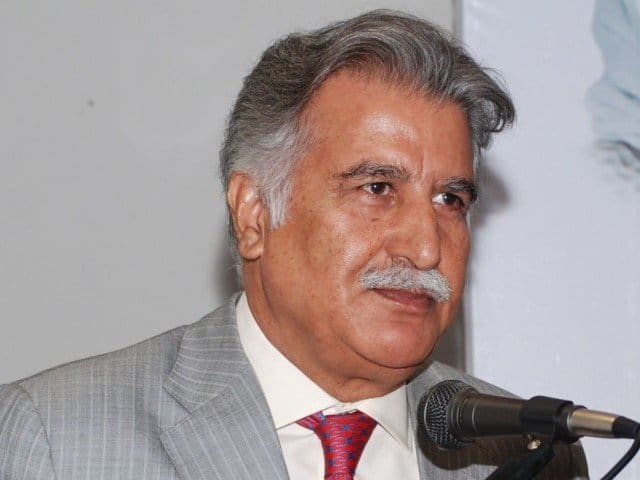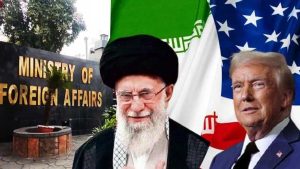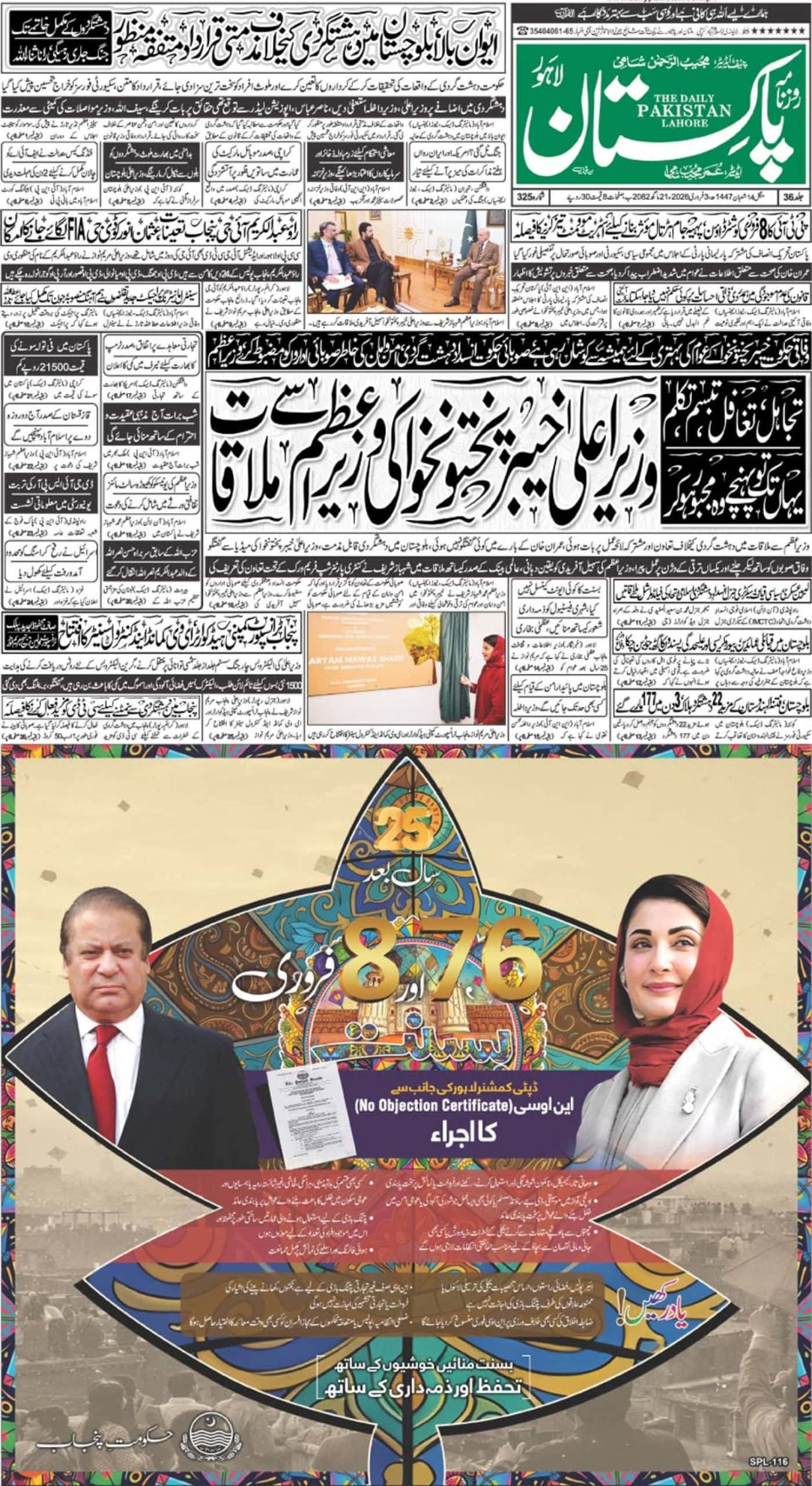ISLAMABAD – The recently appointed Prime Minister of Pakistan Shahid Khaqan Abbasi has green lighted the dismissal of former EOBI chairman Zafar Gondal from service, here on Friday.
According to a notification issued by the PM House, the dismissal of Gondal was done upon completion of multiple inquiries by competent officers.
The premier, after reviewing the reports suggesting that the charge sheet and allegations against Zafar Gondal were proved right observed that Gondal serving as a Grade-20 officer of the Pakistan Audit & Accounts Service should be dismissed.
The dismissal was sought by the officer who put forth his recommendations on 4th January 2017 after reviewing the overall case against the Gondal, who inflicted heavy loss during his tenure as chairman ‘Employees’ Old-Age Benefits Institution’.
‘The documentary evidence against Mr. Zafar Iqbal Gondal is so clear and compelling that the Inquiry Officer is completely justified in concluding that the charges against him stand fully proved’ the notification said.
The inquiry officer also concluded that Gondal resorted to delaying tactics during the trial including seeking open-ended adjournments; not responding to the statement of allegations and charge sheet despite having received and acknowledged these documents.
Upon receiving the recommendations, the premier using his authority under the ambit of ‘Government Servants (Efficiency and Discipline) Rules 1973’ concluded that Gondal is guilty, beyond reasonable doubt, of ‘corruption’, ‘misconduct’ and inefficiency.
Zafar Gondal’s EOBI Stint
The Federal Investigation Agency had initiated investigations against Zafar Gondal for causing a Rs44 billion loss to the national exchequer through underhand land deals.
Gondal allegedly violated the investment rules of EOBI to buy lands in Lahore, Islamabad and Karachi at exorbitant prices. The official record, a copy made available to the EIC, suggested that the EOBI board vehemently opposed the controversial land deals.
One of the many underhand deals led by Gondal included EOBI purchasing a plaza in Islamabad from a man named Abdul Qayyum at an extremely high price without a third-party evaluation. Qayyum had later told FIA investigators that he paid a kickback to Gondal and other senior officials of EOBI.
In accordance with section 18 of the EOB Act 1976, the institution may, from time to time invest any money which is not immediately required for expenses under this act and may reinvest or realize investment.
The Board of Trustees appoints different Committees under rule 6(i) of EOBI (Board of Trustee) Rules, 1977. At present, the following Committees of the Board are functioning:
1 Investment Committee
2 Human Resource Committee
3 Audit Committee
The mandate of these Committees is to examine any matter referred to them and submit its recommendations to the Board for its consideration and approval. The Investment Committee considers parking of surplus funds in Treasury Bills, and Term Deposit Receipts (TDR) in different banks, investment in equity market and investment proposals in real estate. However, under rule 6 (g) of the EOBI (Board of Trustees) Rules 1977, (Annex II) investment of more than 50 Lac in real estate requires the prior approval of the Board of Trustees of EOBI.
The Institution has a separate Investment Department headed by Investment Advisor/DG (Investment) which prepares different proposals for investment in Government Securities and Real Estate, ensures technical soundness of such proposals and presents them before the Investment Committee. The composition of Investment Committee is as under:
1.Mr. Iqbal Dawood Pakwala, Employer’s representative, Sindh (Convener)
2.Malik Imtiaz Mehfooz, Employees Representative, Balochistan (Member)
3.Chairman EOBI, Member
4.Investment Advisor/DG (Investment)-EOBI (Member)
5.Financial Advisor/ DG (F&A)-EOBI (Member)
6.Joint Secretary OR Representative of OP & HRD (Member)
7Deputy Director General (Investment) (Member)/Secretary
Investment Committee examines bids from different banks for parking of surplus funds of EOBI in T-Bills and TDRs. It also examines the proposals for investment in the equity market. The Committee also examines proposals for making investment in real estate up to Rs.50 Lac and makes recommendation for making investment in real estate for more than Rs. 50 lac.
Rule 3 of the EOB (Investment) Rules 1979 prescribe the permissible investment such as in government securities, Government Guaranteed Securities, shares and immovable properties etc whereas rule 4 of these rules prescribed the limits of investment in each avenue. However, it was established practice before 2010 to invest only in government-owned real estate schemes in order to save the trust money of the poor workers. Thereafter, the management of EOBI started investing in private property as well in violation of established practice.
Several cases were registered against the management of EOBI including Zafar Iqbal Gondal (Chairman EOBI) and the sellers of various properties for buying these properties at highly exorbitant rates.
Gondal was Chairman, Member Board of Trustees and Member Investment Committee. He is the main accused person in all the cases registered as he was not only the chairman but also a member of Investment Committees and Board of Trustees who made illegal investments in private properties in violation of previous practice causing colossal loss of billions of rupees to EOBI.
At present, challans have been submitted in the Court of Special judge (Central) Lahore while post-arrest bail petitions of Zafar Iqbal Gondal Ex-Chairman EOBI in case FIR Nos. 51-57/2013 PS FIA ACC (EOBI Scam) Lahore were heard on 06.10.2016 before Honorable Lahore High Court Lahore. After hearing detailed arguments the Honorable Court reserved the judgment.
On 13.10.2016 the Honorable Court announced the judgment, accepting the bail petitions of accused (Zafar Iqbal Gondal, Ex-Chairman EOBI) on statutory grounds.
Former chairman Employees’ Old-age Benefit Institution (EOBI) Zafar Gondal, a brother of former federal minister Nazar Mohammad Gondal, had recruited over 300 employees in EOBI and inflicted over Rs 600 million losses to the national exchequer.













